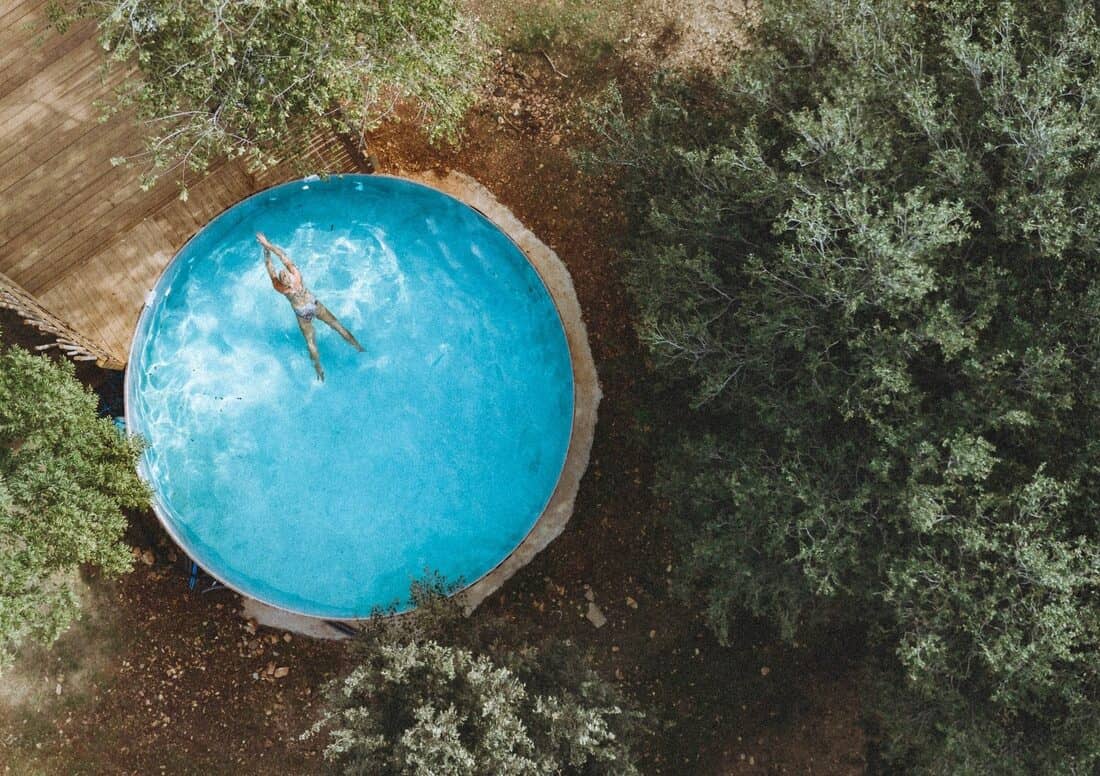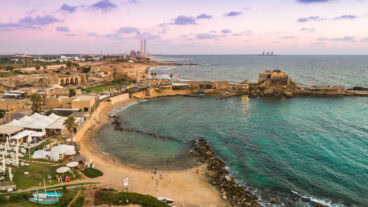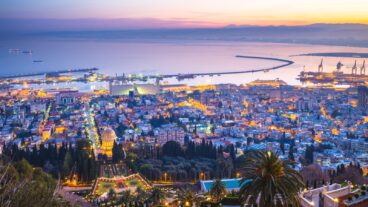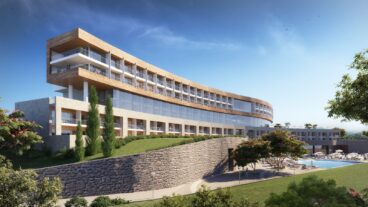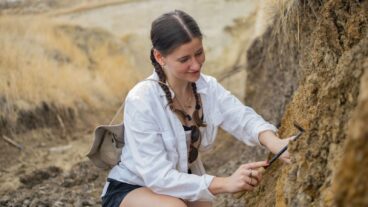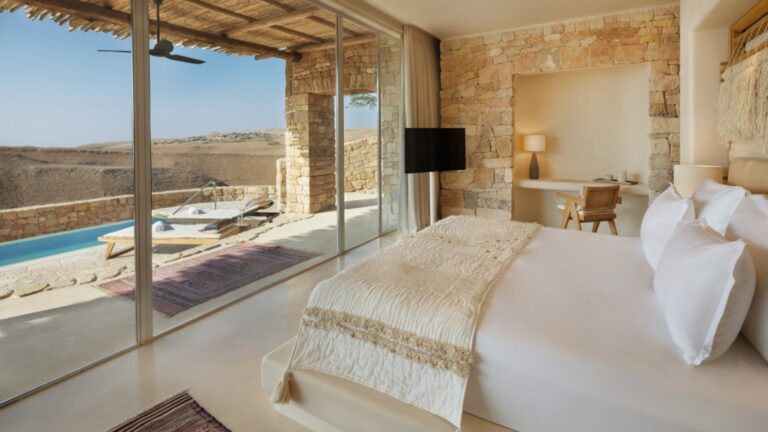Believe it or not, until the 1980s, members of Israel’s Histadrut labor union received an annual paid vacation at a designated Beit Havra’a (Wellness House). These facilities were dotted around the country to provide guests with complete rest and relaxation.
Although far too young to have experienced a Beit Havra’a, David Perez, 45, says he has always felt nostalgia for them.
So, when he went into the hospitality business, he took aspects of the concept as a blueprint. The result is Slowness, a new 30-room “countryside” hotel on Kibbutz Moran in the Galilee.
“It’s not just a boutique hotel which gives you a place to sleep. But a quiet place where you can eat well, sleep well, unwind, and get sunshine and fresh air. We provide hospitality built around wellness,” the former Tel Avivian tells ISRAEL21c.
The Slow-ness vibe
Slowness is distinct from the usual hotel experience.
There is no reception or check-in procedure. Guests receive a welcome WhatsApp message informing them of their room number and then slip quietly into their quarters without doing paperwork.
The sign that points to the accommodation is labeled “Rest.” Housed in rows of renovated kibbutz houses, the rooms have large windows looking out onto thick greenery that gives both privacy and a feeling of being surrounded by nature.
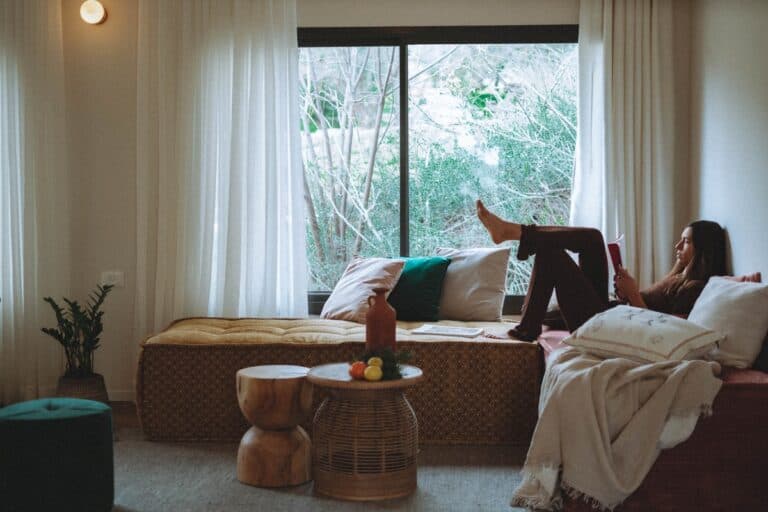
All the tones used in the décor are muted, creating a peaceful atmosphere. There is no TV in sight. On a shelf above the herbal tea and ceramic mugs is a linen pouch containing a self-exploratory card game and a book of poetry.
The room is infused with a fragrance of orange flowers and lavender (also used in the shampoo and soap) created by the Israeli natural cosmetic company Arugot.
Perez points out that only eco products are used for laundering the soft organic cotton linens and towels.
Beyond the rooms are the lounge and restaurant housed in the former kibbutz dining room. Here you feel everything has been carefully curated, from the retro 70s furniture to the art books and highbrow magazines left casually by the seating area around the indoor fireplace. There’s also an outdoor fire pit for cold wintry nights.
Slow Dining
Israeli buffet breakfast fans may be disappointed that none exists at Slowness.
The Moran Slow Dining restaurant (dairy and fish) is open from 8:30am until 2pm (3pm on Friday and Saturday) so that you can have a meal at your leisure. Dinner is served from 6:30 to 10pm.
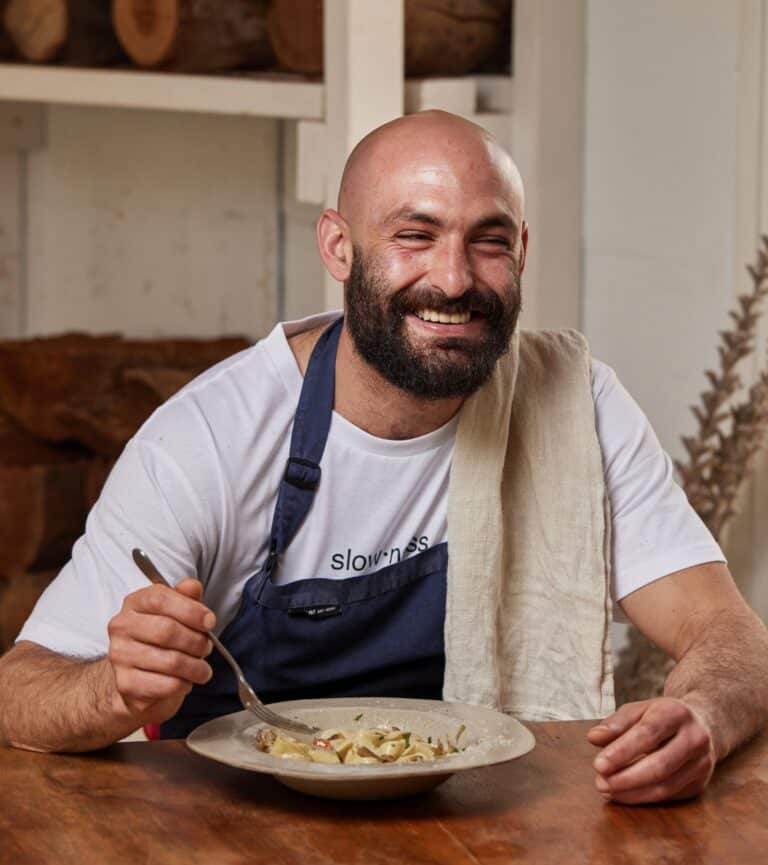
Nitay Yahalom, the chef, grew up on the kibbutz and came back after spending 15 years in Tel Aviv, which included working for Eyal Shani’s restaurant group.
His menu is seasonally based and makes use of the Galilean food basket. The restaurant does not serve meat.
One recent evening menu included cabbage baked in the taboon oven with skordalia (garlic, potato and walnuts) and herb pesto; polenta with fresh corn served with grilled tomatoes and mozzarella; and fish fillet with spinach and mangold. Desserts include a caramel and coconut panna cotta with a buckwheat puff pastry and halva strands and a nectarine tart topped with crème fraiche.

A bowl of fruit is on hand throughout the day for snacking or guests can buy local artisanal chocolates, cheese, wine and more in the deli next to the restaurant.
This is open throughout the night and works on an honesty bar policy. A section of housewares sells terracotta ceramic and glass tableware.

Low-key activities offered at Slowness include an arts-and-crafts room and morning or evening meditation/yoga classes. There is a sauna with an adjacent hot tub and outdoor shower, and a circular pool nestled among trees for guests 16 years and up. Many lounging areas dot the property.
“We really wanted to be a bridge for city people to regain health and vitality. Not to be too harsh, too hippie, too vegan and without pushing a specific way of living but to give the option of it. We wanted to create a place for anyone who wants to recharge their batteries, in couples, groups of friends or even solo travelers,” Perez explains.
How it all started
A short while before the pandemic struck in 2020, Perez, who owned a production company (clients included Coca-Cola and McDonalds) did a juice detox at a retreat center on Kibbutz Tuval in the western Galilee.
“I was experiencing stomach pains, but while I was there I realized that I was in a semi burnout and had been so active that my body and mind was in a total disconnect.”
He decided to prolong his stay to a month and then the first lockdown occurred and his wife and kids came from Tel Aviv to join him.
“When we realized the pandemic wasn’t going away quickly we started to look for a house to escape the city. After six months we decided we didn’t even want to go back,” Perez recalls.
He then sold his company, volunteered at the retreat center on Kibbutz Tuval and opened his first holiday accommodation due to the demand of people coming north “to escape the stress and panic in the city.”
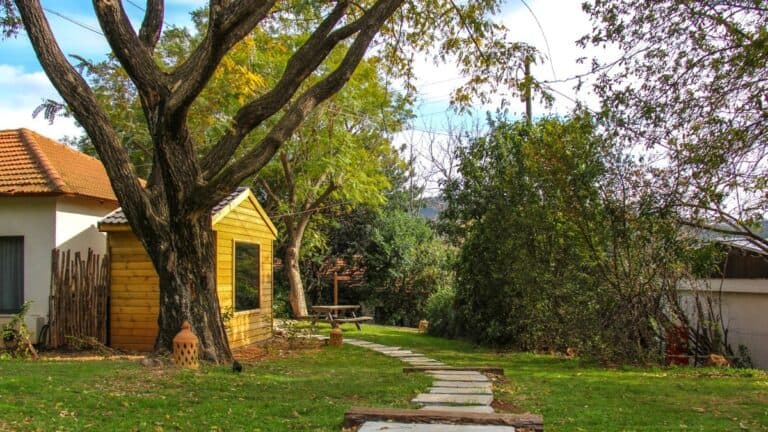
Two of these were his friends Amir Glick, owner of Studio Naim, a chain for yoga and Pilates classes; and PR agency owner Eli Shaked. The trio decided to partner in a hotel venture and began scouring the country.
“We started in the South and although it was beautiful, we realized that developing on private land would make costs go up substantially and the person who would have to pay for it in the end would be the final consumer. We didn’t want to create yet another overpriced hotel,” says Perez.
Finally the Development Council of the Galilee suggested they take a look at a site on Kibbutz Moran, which turned out to be a 10-minute drive from where the Perez family was living.
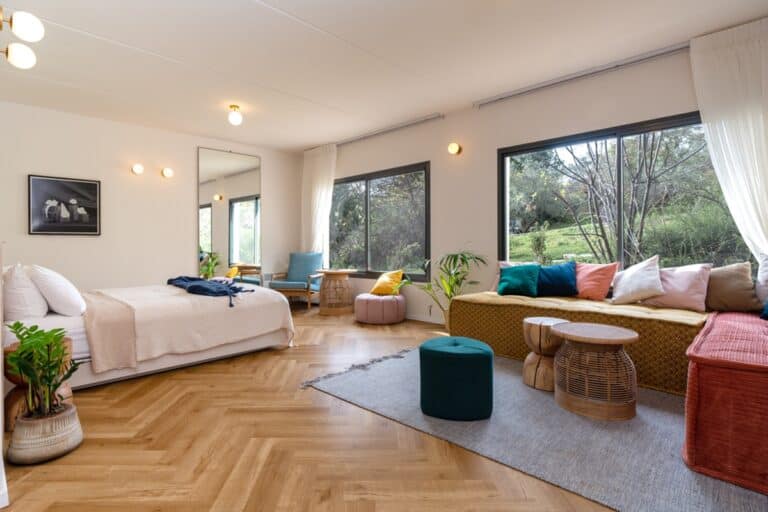
Near Mount Meron Nature Reserve looking out onto a forest, it seemed like the perfect setting. Partnering with a kibbutz would also keep prices down as kibbutzim enjoy preferential taxes and lower utility bills, Perez explains.
Before the partners could go ahead, the kibbutz members had to vote on the project. “It was a tense moment. Many were older guys in their 70s and up, as lots of the younger generation had left the kibbutz. We were surprised, then, when 80 percent voted favorably and it turned out that the 20 percent was made up of mostly younger members who were more worried about their privacy being invaded.”
The kibbutznikim also made sure that a clause in the contract stipulated that the workforce would be made up of residents. Today, many of the 20-somethings employed at Slowness are children of the kibbutz who had moved away but now had an incentive to return.
Perez has some thoughts of his own regarding his family: “I am also thinking about my kids and their future. This project will give them a reason to stay here.”
For more information, click here.




